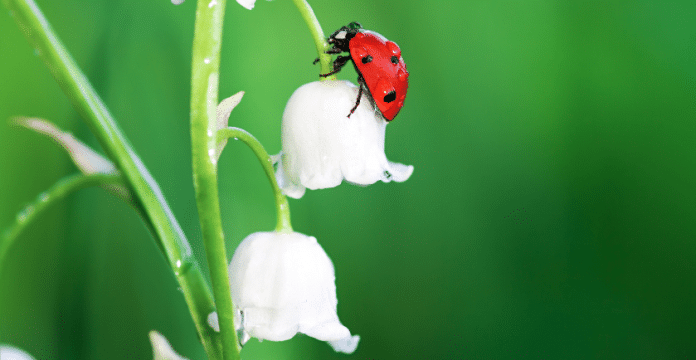
The biodiversity in our garden can do so much for its healthy maintenance. You will be surprised as to how many lifeforms there are in your soil aside from the plants that you try to grow. In this article, we are going to talk about different strategies for getting more bugs in your garden (not pests).
Why Do You Need Bugs in Your Garden
It is important to understand that not all bugs are ready to lend a hand in the upkeep of your garden. There are some who are considered pests. These pests – bugs or insects – can do more harm instead of good by eating the plants. But that is not all. Some insects suck the nutrients from the plants causing vitamin and mineral deficiencies. In due time, these plants will have stunted growth and become susceptible to disease.
It is vital for you, as a gardener, to attract beneficial bugs because they will protect your plants from detrimental pests. A number of bugs love to prey on other insects and therefore act as a natural pesticide.
By eradicating those injurious pests, you help promote a healthy environment. Beneficial bugs also enrich the soil by creating holes that enhance aeration and mixing of components that enrich the soil and encourage plant pollination in the long run.
Types of beneficial insects you will need
Predators love eating slow and small insects. They do not technically choose which one to attack. It may take time for them to come to your garden since they would love to go where there is an abundance of ‘food’. Damsel bugs, ladybird beetles, and wheel bugs are common examples of predators in your garden.
Parasitoids, from the word parasites, attach to certain insects which would serve as their host. Eventually, these hosts will die since the parasitic bug has consumed all their nutritional elements after laying eggs in or on them. They come as your first source of defense. Unlike predators, parasitoid defends you from an immature insect.
Pollinators, unlike the first two types of beneficial insects, are not there to combat pests, but they are undeniably important insects to take care of. They are important so that your fruits and vegetables can set crops. Ants, bees, beetles augment the growth and development of seedlings through cross-pollination.
Read about 10 Fruits and Veggies You Can Plant With Your Kids
How to Get Bugs to Your Garden: 5 Ps to Success!
Patience
The key to getting bugs to your garden is patience and persistence. You can't build a colony of beneficial bugs in just one day (unless you purchase them). You will need to spend some amount of time and effort getting to know the pests in your garden so that you can choose the best match.
Pesticide
It is highly advisable to use natural pesticides before releasing your purchased beneficial bugs. However, these pesticides must be sprayed only when there is a high population of pests already. You have to take precaution when using pesticides, even natural ones. If the contents of your pump sprayers are broad spectrum pest killers, you will end up killing all the insects in due course. Yes, you read that correctly, even the good guys will either be dead or they will relocate in another garden. With this in mind, opt for oils, soaps, and other botanical solutions.
Plants
Plant plants that will save your plants. I know, this may sound redundant or even funny, but trust me, it’s sensible. Even humans thrive in locations where they find comfort and food. Use this strategy to harbor beneficial bugs longer.
An insectary is important because it will nest different kinds of bugs that will help you promote your garden’s health. Plant flowers so that helpful insects that feed on nectar and even pollen will enjoy. Put daisies, cosmos, oregano, thyme, and umbels in the ground for growing. They are not only good sources of food; they also serve as a good playground and hiding spots for your beneficial bugs.
Provide Water
Hydrating the lifeforms in your garden is crucial or else they will die or leave your garden. Make sure that there is an abundant source of water even when the weather is dry. Check your irrigating system, water your plants regularly, and you might want to leave small water containers with water.
Practice Spraying Wheast or Sweeteners
This formulation can provide additional sources for beneficial insects. This is a mixture of 1 part sugar and 1 part yeast. It is an inexpensive way to attract bugs to your garden. Commercial formulations, on the other hand, contain whey, which is why the name wheast was derived.
If you plan to do it on your own, combine the sugar and yeast until it turns into a paste. Get wooden stakes and apply a liberal amount of the wheast. Carefully organize the wooden stakes on different parts of your soil. Alternatively, you may create a dilution by adding water to the paste and spray.
As for the sweetener, dilute 10 tablespoons of sugar or honey in 1 quart of warm water. Directly spray this formulation to insects with soft-bodies like aphids. The parasitic animals will then get attracted to the smell and will serve as their open invitation.
I hope you learned something with this article. If you have more ideas, feel free to share them with us through the comment box below!




